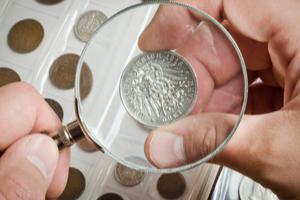Wheaton Office |
St. Charles Office |
Sycamore Office
 630-665-7300
630-665-7300
Addressing Collectibles and Collections in Your Kane County Divorce
 Collecting stamps, coins, fine wines, or other collectibles is not just a fun hobby, it can also be extremely lucrative. If you are a collector, you know just how valuable collections can be. Collections are treated the same as any other assets during a divorce. This means that both spouses may have a right to an equitable share of the collection's value. Valuing and dividing collections and other high-value assets during a divorce can be quite involved. For help, reach out to a divorce lawyer experienced in complex property division issues.
Collecting stamps, coins, fine wines, or other collectibles is not just a fun hobby, it can also be extremely lucrative. If you are a collector, you know just how valuable collections can be. Collections are treated the same as any other assets during a divorce. This means that both spouses may have a right to an equitable share of the collection's value. Valuing and dividing collections and other high-value assets during a divorce can be quite involved. For help, reach out to a divorce lawyer experienced in complex property division issues.
Who Has Ownership Rights of a Collection?
Many collectors spend years or even decades accumulating items. Often, the value of a collection is greater than the value of the objects individually. Not only do collections have monetary value, they also have significant sentimental value to the individual who worked hard to amass them.
Examples of collections that will need to be addressed during divorce include:
- Art
- Record albums
- Vintage toys
- Stamps
- Coins
- Fine wine or other high-value liquor
- Historically significant items
- Jewelry
- Antiques
- Classic cars
In an Illinois divorce, marital property is the property that was accumulated by either spouse during the marriage. So, even if only one spouse purchased the items, both spouses may have a right to the items that were purchased during the marriage. The exception to this is when a spouse uses a prenuptial agreement or other marital agreement to designate collectibles as non-marital property. Collections acquired through gifts and inheritance are also considered non-marital property in most cases.
Dividing the Value of a Collection During Divorce
Because the value of a collection is often greater than the sum of its parts, it may not make sense to physically divide items in a collection between spouses during a divorce. The better way to handle it may be to assign the collection to the spouse who collected the items and compensate the other spouse for his or her share with assets of equivalent value. For example, one spouse may keep the rare coin collection, but the other spouse may keep the family car.
Of course, before collections can be divided during divorce, the value of the collection must be determined. Valuing collectibles can be extremely difficult because the value is often a reflection of the current market. For example, there was a time when Beanie Babies were extremely valuable commodities. Now, these stuffed animals sell for much less than they did in during the Beanie Baby craze of the 1990s.
Contact a Kane County Divorce Lawyer
If you or your spouse own collections, art, antiques, or other high-value items, contact a St. Charles property division attorney from MKFM. We can help you value and divide property, including collectibles and ensure your rights are protected throughout your divorce. Call 630-665-7300 for a confidential consultation.
Source:
https://www.ilga.gov/


 Read More
Read More





